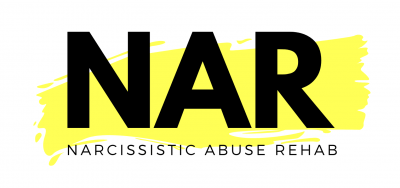THE CHILD OF A HIGHLY NARCISSISTIC PARENT is born into a gaslit reality, in an environment where everything must revolve around their parent’s false self. From an early age, the child must learn to avoid wounding their parent’s fragile ego or risk their parent’s unbridled aggression.
An excessively self-absorbed parent cannot recognize the emotional needs of their child. The more narcissistic a parent is, the more likely they will see their child as an extension of themselves and not as a separate individual. The type of parent will punish any attempts by the child to differentiate themselves.
Highly narcissistic parents master the art of inflicting psychological pain on their children without raising a hand. One of the ways they accomplish this is by invalidating the child’s sense of reality through gaslighting, one of the components in coercive and controlling behavior.
The cumulative effect of emotional neglect and intermittent reinforcement on children over time can cause the child to suffer depression, anxiety, or post-traumatic stress. These conditions can persist long after the child has matured, and they are common among adult children of narcissists (ACONs).
1. The false self becomes a false idol
As a parent, the narcissist’s false self becomes a false idol that demands to be worshipped by their family unit.
Narcissists create glaring power imbalances between themselves, their spouse and children.
Love is neglect, abandonment, tyranny, and subjugation.
Because the narcissist’s needs supersede the needs of everyone else, the group internalizes the message that their needs don’t matter unless the narcissist says they do.
If the spouse is empathic, the narcissist undermines their authority. The children learn that might is right. They must appease the narcissist if they want to have their needs met.
2. The narcissist engineers dysfunction
Because a narcissistic family unit is an organism that operates in a gaslit pseudo-reality, it is less akin to a family and more like a cult or a dictatorship.
In this dynamic, the group can’t be supportive, accepting, healthy, or just. Instead, family members behave and interact in unhealthy ways.
The children must learn to navigate the power imbalances and the inevitable abuses of power that ensue.
Thus, the default setting for existence in a narcissistic family is dysfunction.
3. Love is conditional
Children of narcissists learn that love is abuse. The narcissist shows them that if someone displeases you, it is okay to punish them and call it love.
For the child of a pathological narcissist, love is having your personality rejected and replaced with one the narcissist prefers. Love is neglect, abandonment, tyranny, and subjugation.
Narcissists see a child’s individuality as an act of insubordination.
Love is intermittent reinforcement with spouses and children alike.
The child is love-bombed when the narcissist feels the child reflects their false self. The moment the child fails to do so, the narcissistic parent blithely discards them.
4. Narcissists reject children who are not like them
Survival in a narcissistic family depends on each family member’s ability to take on and reinforce the assigned roles, toxic attitudes, and habits of the narcissist. No one is safe from a narcissist’s pernicious scrutiny, not even their children.
In the narcissist’s view, anyone who does not echo their image of themselves is rejecting them. Failure to reflect and affirm their false self is a threat. Thus, a child who does not accept the role assigned by the narcissistic parent triggers a narcissistic injury.
A lot of different personalities develop in the narcissist’s ecosystem.
The narcissist cannot process negative feedback, and by extension, nor can their family unit. They have zero tolerance for any person or thing they believe may endanger their fragile false self. When faced with such a threat, narcissists attack — even if the source of their ire is an infant.
Narcissists see a child’s individuality as an act of insubordination. Their response to this perceived narcissistic injury is contempt, oppression, and rejection of the offending child. As an act of expediency, the narcissist casts the child in the psychologically devastating role of the family scapegoat. The narcissist condemns the child to bear the blame for all of the family’s dysfunctional behavior and its outcomes.
Conclusion
To grow up in a narcissistic family is to grow up in an inverted reality, where right is wrong, and wrong is right. Anything goes as long as you tow the narcissist’s line.
There will be flagrant betrayals, hypocrisy, double standards, cruelty, and abuse. If one of the parents is empathic, the children will get a daily dose of how to manipulate, exploit, and subjugate another human being.
A lot of different personalities develop in the narcissist’s ecosystem. How the child turns out depends on how they navigate the harsh psychological terrain of the family.
This article is also published at Medium.com.
Resources
- Kernberg, Otto F. Borderline Conditions and Pathological Narcissism. Lanham: Rowman & Littlefield Publ., 2004.
- Kohut, Heinz. The Analysis of the Self A Systematic Approach to the Psychoanalytic Treatment of Narcissistic Personality Disorders. Chicago: University of Chicago Press, 2013.
- Ronningstam, Elsa (2005). Identifying and Understanding the Narcissistic Personality. New York City: Oxford University Press. pp. 22–27.
- Ronningstam, Elsa (19 January 2016). “Pathological Narcissism and Narcissistic Personality Disorder: Recent Research and Clinical Implications.”
- Malkin, Craig. Rethinking Narcissism: the Bad — and Surprising Good — about Feeling Special. New York, NY: HarperWave, 2015.
Confidential support is available 24/7/365 to anyone experiencing abuse.
In the USA call 1-800-799-7233 or log on to thehotline.org.
In the UK call 0808 2000 247 or log on to nationaldahelpline.org.uk.
NAR’s Journalistic Standards and Practices
About NAR • Report Typo or Error






